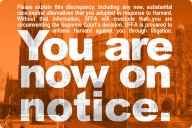You have /5 articles left.
Sign up for a free account or log in.
The debate about which functions academic libraries should perform in the 21st century has been and continues to be a fiery one. At some colleges, library directors have left or lost their jobs following disagreements over what to prioritize. Other institutions have embraced a (nearly) book-free future, freeing up stacks for study space.
While librarians ponder the future of their institutions, faculty members are increasingly expecting more from their libraries. In addition to buying new scholarly journals and storing old books, libraries should also serve as gateways to research, support centers for undergraduates and more, faculty members say.
R. David Lankes, professor and Dean's Scholar for New Librarianship at Syracuse University, argues that “academic libraries, like all libraries, must shape themselves and their services to the specific communities they serve.” His new book, The New Librarianship Field Guide (MIT Press), presents five recommendations. Academic libraries and librarians, he suggests, should create an active research agenda, work shoulder to shoulder with students, incubate new forms of instruction, transform the university press into a community publisher that also produces apps and courseware, and help departments make informed tenure and promotion decisions.
“Gone are the days when academic libraries were simply repositories of books and other materials, set off to the side and not actively serving the missions of their universities,” Lankes writes. “What’s needed today is a commitment by university administrators, faculty, students and librarians to reinvent the whole concept of academic libraries.”
Lankes, who will move to the University of South Carolina’s School of Library and Information Science next month, responded to questions about his book by email. His comments have been lightly edited for clarity.
Q: I'd like to start this Q&A by tying it back to your previous book The Atlas of New Librarianship. You struck an optimistic tone back then, calling for librarians to reject the idea that libraries needed to be “saved.” Are you still the “goddamn Batman”? What have you seen in the last five years that makes you say the future of libraries is still bright?
A: What I have seen is a consortia of libraries in the Chicago area that are not only working together to preserve the cultural heritage of the area, but frame it in a focus of innovation and scholarship. I see more and more librarians embedded into research teams and centers. I see librarians out front pulling their faculties toward a more open and equitable research record. I see a digital humanities community where librarians are seated at the table as equals and essential platform builders. I see librarians more valued for the ability to assess impact than organize materials.
Academia, as every industry, goes through cycles. I remember the days when every university and college was going to get rich off of intellectual properties and patents. I have driven through many open fields with great utilities because that was going to be the innovation park where spin-off businesses were going to build their headquarters. What I see now is a retrenchment to the core of making communities better through good teaching, public scholarship and authentic methods of assessing "better communities." I also see many, many academic libraries right there, waiting for the rest of the university to catch up.
Are there still librarians focused on materials management? Yup. Are there still libraries wondering how they fit into a digitally connected world? Yup. But more and more I see impatient librarian activists working with administration and faculty to push forward. Librarians are the goddamn Batman still.
Q: You present five ideas for how libraries can “proactively speed the scholarly conversation.” Where would you say libraries are farthest along? Where are they still lagging behind?
A: There are some great examples where academic libraries are becoming true publishers of the whole universities. The clearest example is the large number of academic presses that have been folded into or governed by academic libraries. However, this is only part of the story. Academic libraries are expanding decades of work digitizing resources and providing institutional repositories.
One area where I see academic libraries taking the lead is in open-access publishing. There are some very notable libraries not only raising awareness of open-access publishing but actively guiding university policy making and building platforms for new forms of scholarly communication.
In terms of lagging behind, you have to realize the ideas presented here are examples, not an agenda per se. However, I would like to see librarians much more deeply integrated into the tenure process of universities. It still boggles my mind a bit that for one of the most important decisions a university can make -- granting tenure -- we expect faculty of all disciplines to become bibliometricians. I can certainly understand the need for discipline expertise on the content of scholarly output, but the actual citation analysis, the incorporation of alt-metrics and valid diffusion analysis is the wheelhouse of library scientists.
Q: Reinventing the whole concept of academic libraries, as you write, will require motivation, support, continuous training and development, and a culture of innovation and exploration. I can think of another big one: funding. How can librarians make the case that colleges should fund these new initiatives when they’re already fighting over their acquisitions budgets?
A: Librarians in general need to get out of the "new plus" mind-set. That is, every new opportunity simply being added to an already overstressed workforce and budget. There is some serious questioning about what librarians can stop doing that is needed.
However, the long-term issue is that libraries are bearing the budgetary brunt of a broken scholarly communication system. Universities need access to scholars' work in journals, databases, books, etc. Science of all sorts is a conversation of peers. That conversation exists behind paywalls and budget-busting licensing agreements. This would be true if you closed libraries. Researchers would still need the access.
Librarians have been, and need to continue to be, innovators and advocates in this space. Academic librarians are more often than not fighting for more funding to simply keep up access. It is taking away money that librarians, faculty and academics could be using to improve research and teaching.
Ultimately what I am advocating for is for librarians to stop shoring up an increasingly expensive and dysfunctional system of scholarly communication and be part of inventing something new.
Q: Libraries are going to need new talent to support these new activities -- people with experience in scholarly communication, educational technology and teaching, for example. Where should libraries look to recruit that kind of talent? Alternatively, if training new talent is the way to do it, do library science and professional development programs need to change? How so?
A: I'm a strong advocate for librarians serving as the core facilitators of these changes. This will only work if two things happen: librarians focus on learning and conversation, and librarians do a better job of partnering with nonlibrarians. The first requires a change in library science curriculum to incorporate more instruction, facilitation and communication skills. I've written now three books on the topic, so I won't belabor that issue. The second task of partnering, however, could use a little more discussion.
There is nothing new about hiring nonlibrarians to work in libraries. Today it is technologists, anthropologists and geographers, but the concept of nonlibrarians as library staff is nothing new. What is now more important than ever is ensuring that these disciplinary experts aren't brought in as silos. It is important for everyone associated with librarians to have a grounding in common principles and values. Greater diversity of all kinds is needed in libraries. Yet the core of making a diverse library work is mutual respect and shared values mutually developed.








